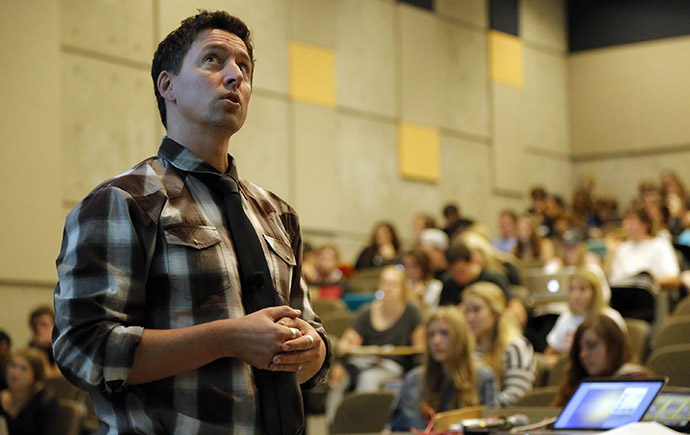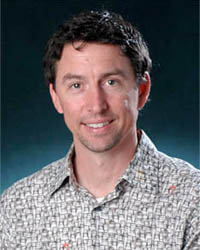CSTPR Welcomes Max Boykoff as Directorby Dan Zietlow, CSTPR Writing Intern |
After completion of his Ph.D. in environmental studies from the University of California, Santa Cruz and a stint with a research fellowship at the University of Oxford’s Environmental Change Institute along with a fixed-term lectureship in the School of Geography and the Environment, Boykoff joined the University of Colorado faculty in Fall 2009. His research focuses on the cultural politics of climate change and the transformation of carbon-based economies. He holds appointments at CU across multiple units, including CIRES as a Fellow, the Environmental Studies program as an Associate Professor, and as an Adjunct in the Geography department. Boykoff states he enjoys this interdisciplinary focus as it enables him to “access tools and perspectives across the various disciplines to answer challenging, complex, and multi-layered issues” confronting us in the 21st century. CSTPR is important primarily as a research center, with teaching and service elements that all emphasize how science finds traction in politics and decision making, how policy decision makers access scientific ways of knowing, and how science and policy can help people decide the type of futures they want for themselves and for their communities. Boykoff says this doesn’t merely take place with influential policy makers at the city, state, national, or international levels, but also importantly with “everyday people in society.” A number of initiatives that serve not only the CU-Boulder community, but also those “everyday people,” excite Boykoff, who strives in his role as Director to lead and support research from CSTPR faculty and students that take up science-policy challenges reaching varied audiences. “To be successful requires us to think smarter about reaching people where they are and helping them then to make what they consider to be ‘better’ decisions in the face of 21st century environmental challenges.” Boykoff is energized by the interdisciplinary nature and spirit of CSTPR, and enjoys helping folks make connections across the natural and social sciences, as well as humanities, within a culture of rigorous productivity and belonging. The breakdown of disciplinary boundaries, Boykoff believes, will help the broader science-policy community thrive, and is an endeavor he seeks to foster at CSTPR. “We live in a place where, per capita, we have the highest concentration of climate scientists. This is exciting as it uniquely enables collaborations between CSTPR researchers and the wider CIRES community as well as across the CU-Boulder campus and broader community.” He says that it is important to “[build] bridges to other groups to most capably address complex, dynamic and formidable challenges,” and Boykoff hopes CSTPR will build from its guidance under its previous Directors to continue to be a “hub for collaborative science, technology and policy research.” And finally, when asked to choose between Bill Nye and Neil deGrasse Tyson if only one could join CSTPR? “Neil deGrasse Tyson, all the way.” Interested in CSTPR and science policy? Visit the CSTPR website or contact Max Boykoff at boykoff@colorado.edu. |



 The CIRES Center for Science and Technology Policy Research (CSTPR) is pleased to announce Max Boykoff as its new Director. Professor Roger Pielke, Jr., who served as the Center’s founding director from 2001-2007, and again as director from 2013 until he completed his term in January, has gone on to spearhead creation of the CU Sports Governance Center within the CU Athletic Department.
The CIRES Center for Science and Technology Policy Research (CSTPR) is pleased to announce Max Boykoff as its new Director. Professor Roger Pielke, Jr., who served as the Center’s founding director from 2001-2007, and again as director from 2013 until he completed his term in January, has gone on to spearhead creation of the CU Sports Governance Center within the CU Athletic Department.